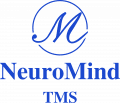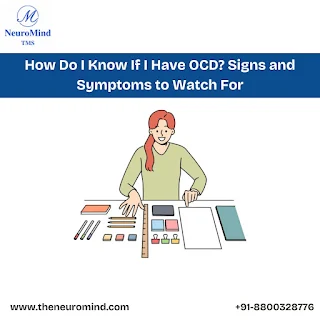Obsessive-Compulsive Disorder (OCD) is a complex mental health disorder that impacts millions globally. OCD is defined by recurrent, unwanted thoughts (obsessions) and repetitive acts or mental processes (compulsions) that are carried out to alleviate anxiety. Most people have odd obsessive thoughts or compulsive things they do, but for those who struggle with the disorder, it becomes a source of great distress and interferes with daily life. But how can you tell if you actually have OCD? Below are the key signs and symptoms to look out for.
The Basics of OCD: What Is it?
OCD is a lifelong disorder that can affect various aspects of functioning, such as work, relationships, and quality of life. It typically begins in childhood or early adulthood and can range from mild to severe. OCD is made up of two main parts:
Obsessions: Intrusive, unwanted thoughts, images or urges that create anxiety. Obsessions can range from fears of contamination to concerns about safety (e.g., leaving doors unlocked) to intrusive violent or taboo thoughts.
Compulsions — Repetitive actions or mental practices undertaken to relieve the anxiety generated by obsessions. Examples are excessive handwashing, repeatedly checking locks, or mentally counting certain numbers.
Signs and Symptoms of OCD
Wondering do OCD actually gets cured? 's first step is to acknowledge what it may look like and seek professional guidance. These are the most common symptoms of OCD:
Fear of Contamination
Anyone struggling with OCD may have extreme germ-, dirt-, or contamination-related fears. This can result in profuse handwashing, avoiding others and disinfecting things frequently.
Checking Behaviors
People might feel the need to check things again and again, for example, locking doors, turning off appliances, or checking that they haven’t done something incorrectly. These compulsions are often driven by fear of harm.
Unwanted Intrusive Thoughts
OCD can lead to disturbing thoughts, or mental images, about hurting oneself or others, sexual obsessions or blasphemous ideas. Such thoughts can be upsetting, even if the person doesn’t mean to act on them.
Need for Order and Symmetry
A strong desire for things to be arranged the right way or the need to maintain symmetry is another common symptom of OCD. Some will spend hours rearranging items or doing things a certain number of times until it “feels right.”
Hoarding Tendencies
Other OCD sufferers have difficulty throwing objects away, because they fear having thrown away something that is of great value. This creates cluttered spaces and heightened anxiety.
Ritualistic Behaviors
A common compulsion is doing certain things (counting, tapping or repeating words) to prevent imagined negative outcomes. These rituals can take time and disrupt daily lives.
On What to Know: When to See a Therapist
If you relate to these symptoms and they are impacting your daily life, it might be worth it to speak with a health professional. Finding a therapist for OCD near me can link you up with therapists who specifically work with individuals with OCD. One of the most effective treatment approaches for OCD is Cognitive Behavioral Therapy (CBT), and more specifically Exposure and Response Prevention (ERP). Medication, in some instances, is also prescribed to assist in controlling symptoms.
Can OCD Be Cured?
Though there’s no single cure for OCD the condition is very treatable, with therapy and medication. Most feel a tremendous alleviation of their symptoms and struggle through life far less. The right treatment approach and early intervention can make a big difference.
How The Neuromind Helps In The OCD Therapy Process
We have advanced OCD treatment to meet their needs at The Neuromind. We utilize CBT and ERP therapy which are scientifically proven to help patients break free from obsessive thoughts and compulsive behaviors. Using structured therapy sessions and tailored treatment, many of our clients find relief from OCD for the long term. We want to instruct you on ways of dealing with your anxiety so you can live life without it even controlling what you eat. Here at The Neuromind, we can help you on your path to recovery if you are looking for the best OCD therapist near you.


